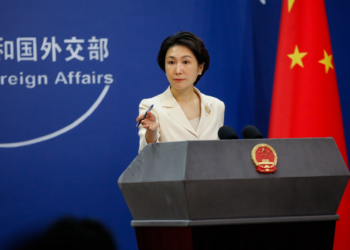A landmark Memorandum of Understanding (MOU) was finalized today to enhance workforce development and technical education cooperation among Belt and Road Initiative (BRI) member states. The agreement, signed by Qaiser Nawab, Chairman of the Belt and Road Initiative for Sustainable Development (BRISD), and Duan Xiaofei, General Manager of CIIC International Education Technology (Beijing) Co., Ltd., establishes a framework to address skill shortages and youth unemployment through vocational training, certification programs, and industry-academia partnerships.
Speaking at the signing ceremony, Nawab emphasized the initiative’s phased rollout, beginning with a pilot project in Pakistan in July 2025. “The first phase will train 10,000 Pakistani youth, scaling up to 100,000 participants, with plans to expand across all BRI nations,” he stated. The program will focus on aligning skills with labor market demands, particularly in sectors tied to the China-Pakistan Economic Corridor (CPEC) and broader BRI infrastructure projects.
“Pakistan’s dynamic youth population presents immense potential, but unlocking it requires targeted training,” Nawab explained. He underscored the role of CIIC International Education Technology in bridging this gap, noting, “CIIC’s expertise in delivering industry-aligned vocational programs ensures participants gain globally recognized certifications. Our collaboration goes beyond training—it integrates job placements within BRI projects, especially with Chinese enterprises operating in partner countries.”
Duan Xiaofei echoed this vision, highlighting the partnership’s strategic importance. “This initiative strengthens technical education and cultural ties between China and Pakistan while advancing the BRI’s goals,” he said. “By nurturing skilled talent, we lay the groundwork for sustainable economic growth and mutual prosperity.”
The MOU also prioritizes knowledge-sharing mechanisms to adapt training models to regional needs. Nawab stressed sustainability, citing high demand for skilled labor in Pakistan and Global South nations. “The challenge isn’t a lack of youth enthusiasm but equipping them with relevant expertise. This program directly addresses that gap, ensuring long-term employability and economic resilience,” he added.
With job placement guarantees in BRI-linked industries, the initiative aims to transform vocational education into a direct pathway for youth empowerment and regional development.
















